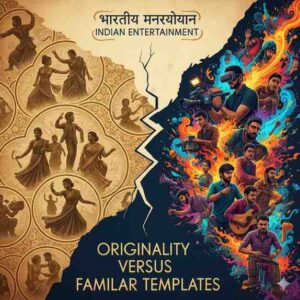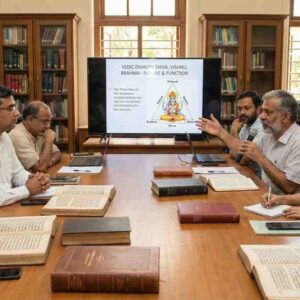Beyond Rituals and Firecrackers: Are Hindu Festivals Losing Their Spiritual Essence?
Hindu festivals, celebrated with grandeur and fervor, are not merely occasions for rituals and social gatherings. They embody profound philosophical teachings, offering insights into ethical living, spiritual growth, and the interconnectedness of life. However, as commercialization and modernization influence their observance, a question emerges: are we diluting their deeper meanings?
The Philosophical Core of Hindu Festivals
Hindu festivals are rooted in the teachings of ancient scriptures like the Vedas, Puranas, and Upanishads. Each festival carries a unique message intertwined with cosmic, moral, and spiritual dimensions.
- Diwali, the festival of lights, symbolizes the victory of light over darkness and knowledge over ignorance, echoing the Upanishadic mantra, Tamaso ma jyotir gamaya (Lead me from darkness to light).
- Holi, the festival of colors, emphasizes the destruction of ego and the celebration of unity, drawing from the story of Prahlad and Hiranyakashipu to teach the triumph of devotion over arrogance.
- Navratri, with its worship of the divine feminine, underscores the cyclical interplay of creation, preservation, and destruction in the universe, reflecting the philosophical essence of Shakti and Durga worship.
These festivals are not merely cultural celebrations but also serve as reminders of ethical duties (dharma), self-discipline, and spiritual awakening.
Impact of Modernization and Commercialization
The Government of India’s 2022 report on “Cultural Practices in Urban India” revealed that63% of urban Indianscelebrate festivals primarily as social events, with limited engagement in their philosophical or spiritual aspects. The rise of consumerism has transformed many festivals into commercial spectacles, overshadowing their original purpose. For instance, Diwali, traditionally a time for self-reflection and renewal, has become synonymous with extravagant shopping and firecracker displays.
Similarly, the excessive use of synthetic colors during Holi has overshadowed its environmental and symbolic significance, raising concerns about its alignment with the ethos of sustainability espoused in ancient Hindu traditions.
Reviving the Spiritual Essence
Efforts are underway to restore the deeper meanings of Hindu festivals. Government initiatives like the Ministry of Culture’s“Ek Bharat Shreshtha Bharat” programpromote cultural awareness and traditional practices through workshops, exhibitions, and campaigns. For example, campaigns to encourage eco-friendly celebrations, such as biodegradable idols for Ganesh Chaturthi and natural colors for Holi, aim to align modern practices with the festivals’ inherent respect for nature.
Additionally, organizations like the Indian Council of Philosophical Research (ICPR) are actively engaging scholars and communities to explore and disseminate the philosophical underpinnings of Hindu festivals, ensuring their relevance to contemporary society.
Challenges and Controversies
Despite these efforts, the balance between preserving authenticity and adapting to modern contexts remains contentious. Critics argue that campaigns promoting eco-friendly practices or discouraging firecrackers risk alienating traditionalists, who see them as integral to cultural expression. On the other hand, proponents emphasize the need for festivals to evolve in ways that reflect ethical and environmental considerations.
Conclusion
Hindu festivals, with their profound philosophical teachings, hold the potential to inspire introspection, unity, and spiritual growth. However, preserving their essence in the face of commercialization and modernization requires conscious effort. By fostering awareness of their deeper meanings and embracing sustainable practices, we can ensure that these celebrations continue to resonate with future generations, serving as timeless beacons of wisdom and harmony in an ever-changing world.










